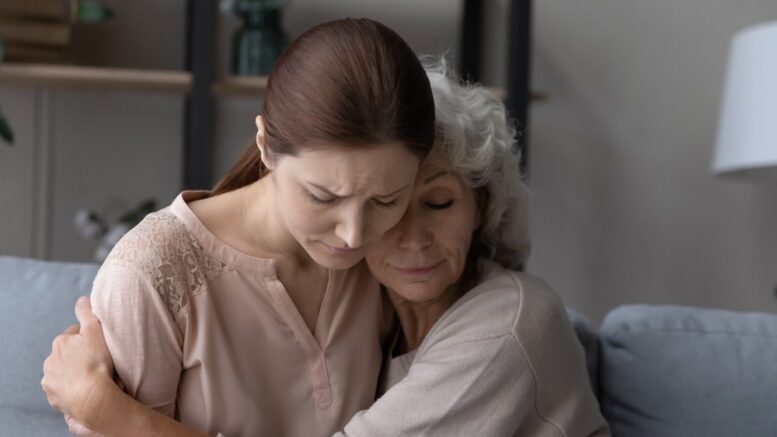To say that there are “common” degenerative diseases among the elderly does little to dispel your concerns when you are the primary caregiver of aging parents. It doesn’t, by any stretch of the imagination, imply that these diseases and conditions are common but rather that they are more apt to strike the elderly. Alzheimer’s disease, for example, can be diagnosed as an early onset case, but that usually occurs in late middle age years. If you are the primary caregiver of an elderly parent, it helps to know exactly how these diseases could affect your aging parent so that you are prepared to give them a better quality of life.
What Are the Most Common Degenerative Diseases in the Elderly?
Although there are several degenerative diseases that can strike people of any age, many of those are much worse among the elderly. While the disease or condition may have been diagnosed earlier in life, the symptoms were easier to deal with simply because the musculoskeletal system was stronger and healthier. Unfortunately, as we age, symptoms we were able to manage at a younger age can render us, for all intents and purposes, immobile.
With that said, the most commonly diagnosed diseases and conditions among the aging are:
- Alzheimer’s disease
- Parkinson’s disease
- Arthritis/Osteoarthritis
And each of those are progressively degenerative, meaning symptoms will progress over time. There is no cure for any of the above and once a senior begins losing mental or physical capabilities, treatments are also progressive. Where it was once possible to take mum or dad to their doctor appointments or out shopping with little assistance, you may need to consider WAVs or wheelchair accessible vehicles. If this is something you feel has become a necessity, visit Allied Mobility to find out more about them and even schedule a home demonstration.
Common Symptoms to Be Aware Of
While mobility may be the one condition necessitating structural changes in various areas of the home such as stairs and bathtubs, there are other symptoms that may be precursors to mobility issues. It is said that such things as:
- Jerky movements
- Regular stumbling and loss of balance
- Tremors
Tremors are common among patients suffering from Parkinson’s and although it is not something specific to elderly patients, it is a condition that typically leads to immobility. One American actor, Michael J. Fox, was diagnosed with the condition at the young age of 29. However, that is not as common as it is in the elderly. Therefore, if you notice that your aging parents begin tremoring, then it is advisable to get an accurate diagnosis sooner rather than later. This, at least, will give you further symptoms to be aware of that may lead to severe issues with mobility.

It is also important to differentiate between Alzheimer’s disease and dementia because one progresses to symptoms such as issues with mobility while the other is typically only issues with cognitive and memory functions. Dementia isn’t known to cause loss of motor movement, but Alzheimer’s eventually affects most, if not all, bodily functions.
Complications of Immobility
Immobility, in itself, can lead to various complications which must also be dealt with. A number of other bodily functions can, and often are, affected by loss of mobility. Complications may include, but are not limited to:
- Increased risk of blood clots (DVT for example)
- Electrolyte imbalance due to dehydration
- Constipation
- Respiratory ailments and infections
- Deconditioning of the cardiovascular system
- Stasis of the urinary tract – possible infections
- Deconditioning of musculoskeletal system
- Anxiety and/or depression
- Pressure ulcers (bed sores)
While some of those complications might be difficult to see as a result of immobility such as constipation or blood clots, others are understandable. If a patient is immobile and unable to turn unassisted in bed, it stands to reason they could get respiratory infections and bed sores. This is why dealing with immobility is of prime concern when caring for the elderly who have cannot walk or move unassisted.
Preparing Your Home for Various Stages of Immobility
Wheelchair Accessible Vehicles were mentioned above but think for just a moment of the layout of your home. Do you have stairs leading in and out of the house? Are the bedrooms upstairs? These may all require some kinds of renovations or remodelling so that is something to plan for as well. It may not be necessary in the early days, but at some point as their condition progresses, you will almost always need to make the home wheelchair accessible as well.
Some families rearrange their homes so that elderly parents can be given a bedroom down stairs. If it is unsafe for them to manage climbing the stairs, that might be the most suitable option. However, there are ways to get your parents safely up and down interior stairways with such things as wheel chair lifts that can be installed on literally and interior stairway. Some homes are also laid out in such a way that a small elevator can be installed. Since there are so many options, finding one that fits your home, and your budget is possible.
In the early stages, a ramp up and down the front stairway may be the easiest thing to accomplish, but there are alternatives there as well. A more permanent ramp can be installed that is not as steep and difficult to manage. Have you ever noticed how public buildings have a sort of U-shaped ramp leading into the building? That may be something you will eventually need to consider if you’ve ample space to run one. It’s all about being able to safely get your elderly parents in and out of the home when there is a need to do so.
It’s All About a Quality of Life
Although some of these suggestions may require a substantial outlay of money, it can be relatively little in comparison to placing them in a private assisted living facility. Even so, your parents will be much more comfortable being cared for by family members who love them, and that is really the deciding factor. If it is something you can manage, then this may offer the greatest level of comfort and care for those parents you love so much.
In your younger years they were there to see you through any difficulty life threw at you such as childhood illnesses and injuries you had sustained. They gave you a quality of life every child should have and now it’s your turn to do the same for them.
While it may be easier to just find an assisted living home, perhaps one with memory care, if this is something you really want to do for mum and dad, then just know that help and support are out there. From groups of adult children of disabled parents to counselling services, there is support in the community to make life easier on you as well.
You are to be commended for your efforts and if at some point you feel you aren’t able to maintain them, there are other options open to your parents as well. At this point in time, remember that it’s all about a quality of life in their senior years, and that’s something only you as their adult children can give them. This may not always be the case, so for now, enjoy those parents you love so much.
